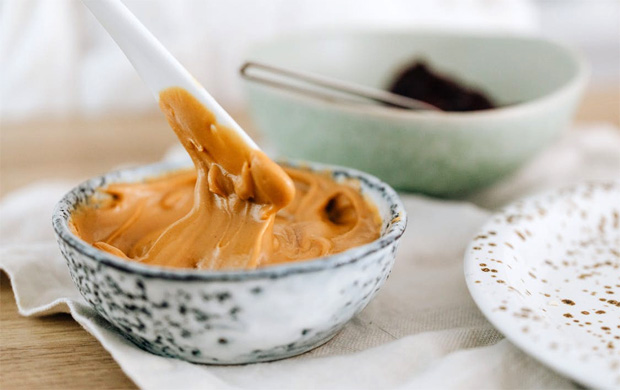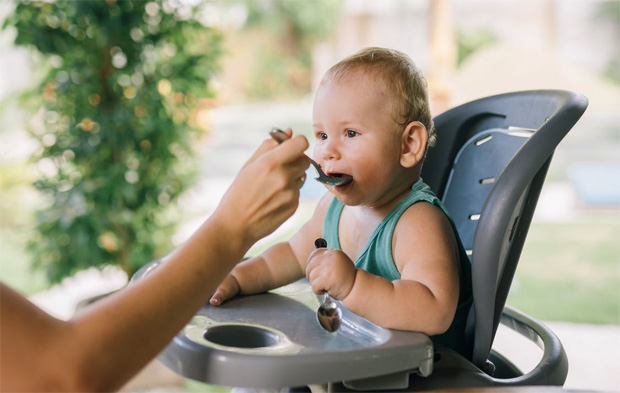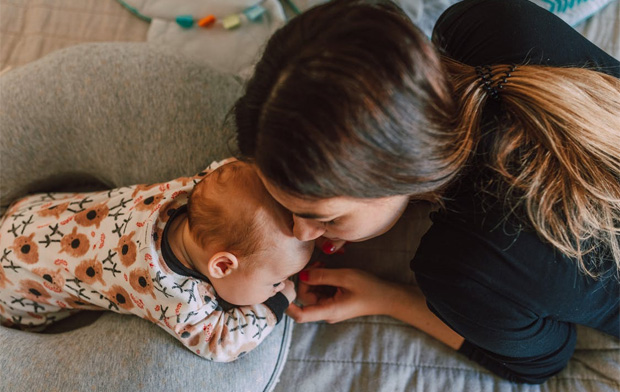Safety Checklist Before You Start Giving Your Baby Peanut Butter

Safety Checklist Before You Start Giving Your Baby Peanut Butter
Peanut butter is delicious and contains very important nutrients. In addition to being so yummy, it also helps boost immunity and lower the risk of heart disease, diabetes, and other chronic health problems.
If your baby has started eating solids and you plan to introduce peanut butter to your little one, you want to know when to include it in their diet and how. Peanut allergies are known to be common in children, so being extra careful when introducing peanut butter as baby food is vital. If you want to know more about giving peanut butter to babies, we recommend that you continue reading below about the things you should keep in mind.
When to Introduce Peanut Butter to Babies
The question frequently posed by most parents is when can children have peanut butter. Since peanuts are very allergenic, parents are unsure when to give them to their children. It can be introduced to infants after the age of 10 months and in very small amounts.
Children who have a family history of allergies, such as egg allergies or eczema, are at high risk of getting food allergies. Research has shown that the introduction of peanuts early in life will help prevent peanut allergy in the future.

How to Introduce Peanut Butter to Babies
First, make sure to dilute the peanut butter with a little warm water and try to get a puree-like consistency. Then let your munchkin taste a little and monitor them for 10-15 minutes for about 24 hours. If your baby isn’t allergic, they will not experience reactions such as hives, rash or difficulty breathing. In that case, you can continue to feed them peanut butter.
You can test by putting a little in the middle of their lower lip. If they’re allergic, they will react immediately. Start by giving a small amount of peanut butter to your little one, even if they have didn’t have an allergic reaction the first time.
Precautions Before Feeding Your Baby With Peanut Butter
Introducing your child to semi-solid or solid foods such as rice, fruits, and vegetables that have a low allergy risk is important before giving high allergenic foods such as peanuts and eggs. Remember to wait 3-4 days or even a week before introducing a new food. This gives enough time to watch out for any signs of an allergy. If you see any signs of an allergic reaction, stop giving the food immediately.
It’s best to introduce peanut butter or another food item made from peanuts at home rather than at a restaurant or daycare. As a safety precaution, some mothers even do this at their pediatrician’s office.
Be careful when giving peanut butter because the structure is thick and can cause a baby to suffocate. Feed your baby peanut butter gradually in very small amounts.

Peanut Butter Allergy
Peanut butter allergy is a serious allergic reaction caused when the antibodies that help fight unknown proteins in the peanut cause histamine release. The reaction causes certain symptoms such as rash, itchy skin, or hives. The skin sometimes becomes red, usually on the face, around the mouth, and sometimes on other body parts. The reaction can be caused either by consuming peanut butter or simply by coming in close contact with peanut butter.
In severe cases of allergy to peanut butter, children may experience a life-threatening breathing problem called anaphylaxis. In such cases, the allergic reaction causes the throat to swell and suppress the breathing passage making it difficult for the child to breathe. It can even trigger low blood pressure, fast heart rate and as a result, the baby may go in shock.

Most Common Symptoms of Peanut Allergy in Babies
Allergy symptoms range from mild to severe and some of them may include:
- The skin may appear red with small spots or large circles.
- The area around the mouth or throat may be itchy or have a stinging sensation.
- In some cases, the baby can get itching anywhere on the body where the peanut has come in contact with the skin.
- Sneezing and wheezing can occur when the dust from peanuts or shells is inhaled.
- A baby may experience nausea, loose movement, stomach cramps, and even dizziness.
- The nose can become clogged or become very runny, which can lead to the baby becoming short of breath.
Final Thoughts
We all want our little bundles of joy to grow up happy and healthy. Giving them different nutritious foods is the way to achieve this but when giving your baby peanut butter for the first time, there are certain things that you must be aware of.
Being vigilant and mindful when slowly introducing peanut butter to your baby, and monitoring them closely afterward, is key.
Guest Article.



